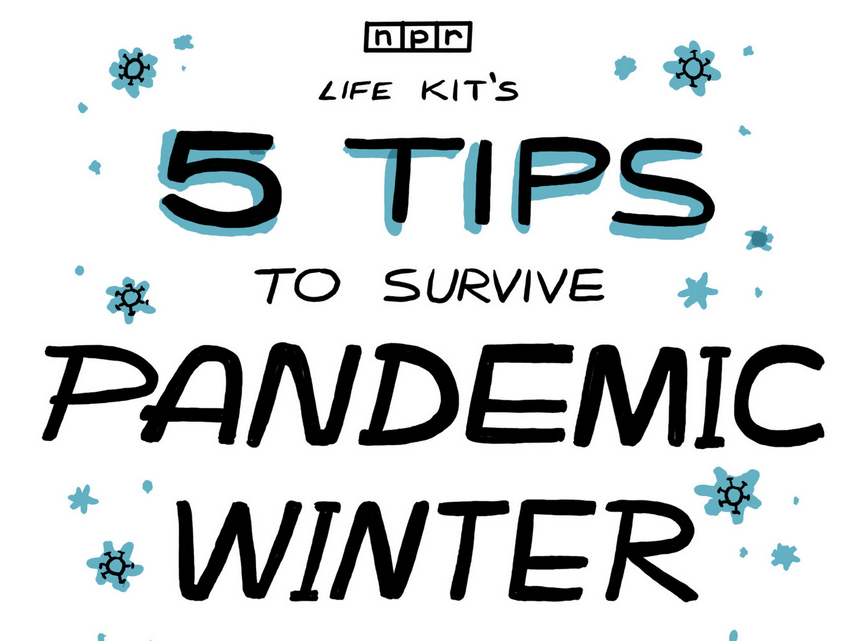The Pandemic Proves We All Should Know ‘Psychological First Aid.’ Here Are the Basics.
 If ever there were a time for people to know the important skills that make up what mental health experts refer to as “psychological first aid,” a pandemic is it. Like regular first aid, PFA is a way of helping someone in pain — except rather than cleaning and bandaging a cut or applying ice to a sprained ankle, you tend to someone’s anxiety or distress in a way that will ease it and help restore a sense of equanimity. Many disaster responders and public health professionals have been trained in PFA, but it’s time for the rest of us to join them, so we can help our families, our friends and ourselves.
If ever there were a time for people to know the important skills that make up what mental health experts refer to as “psychological first aid,” a pandemic is it. Like regular first aid, PFA is a way of helping someone in pain — except rather than cleaning and bandaging a cut or applying ice to a sprained ankle, you tend to someone’s anxiety or distress in a way that will ease it and help restore a sense of equanimity. Many disaster responders and public health professionals have been trained in PFA, but it’s time for the rest of us to join them, so we can help our families, our friends and ourselves.
If ever there were a time for people to know the important skills that make up what mental health experts refer to as “psychological first aid,” a pandemic is it. Like regular first aid, PFA is a way of helping someone in pain — except rather than cleaning and bandaging a cut or applying ice to a sprained ankle, you tend to someone’s anxiety or distress in a way that will ease it and help restore a sense of equanimity. Many disaster responders and public health professionals have been trained in PFA, but it’s time for the rest of us to join them, so we can help our families, our friends and ourselves.
Taking care of yourself during the pandemic, from head to toe
Fortunately, you can dial down your stress reactivity and come to your own emotional rescue — or that of others — with PFA-based strategies. There are many different models of PFA. The World Health Organization’s approach recommends developing skills that help people feel safe, connected to others, calm and hopeful; feel that they have access to social, physical and emotional support; and feel they are able to help themselves, as individuals and communities. Here’s how to put the actual components of PFA into practice for yourself and those you care about:
Address basic bodily needs. If you know people who are struggling to get enough food, water or shelter, help them directly or indirectly (by steering them toward community resources).
Avoid further harm. Protecting people from additional distress is a key aspect of PFA, and there are several ways you can do this for yourself and others. First, check to make sure conditions are physically safe, then take steps to ensure emotional “safety” by treating others and yourself with respect and compassion.
Keep calm to carry on. Maintaining a gentle tone of voice can have a calming effect on distressed people around you. In addition, remind yourself and encourage others to do a relaxing activity — such as yoga, mindfulness meditation, deep breathing or progressive muscle relaxation — every day.
Set priorities. In tumultuous times, it’s easy to feel overwhelmed with worries and fears. That’s why PFA encourages people to consider their most urgent needs, including how to prioritize and address them, versus what can wait. To that end, it helps to distinguish between what you can and can’t control and to encourage loved ones to do the same.
Excerpted from ‘The Pandemic Proves We All Should Know ‘Psychological First Aid.’ Here Are the Basics.” in The Washington Post. Read the full article for additional details on the abovementioned recommendations and the remaining strategies:
- Build hope
- Connect with others
- Practice good communication
- Reinforce coping skills
Source: The Washington Post | The Pandemic Proves We All Should Know ‘Psychological First Aid.’ Here Are the Basics., https://www.washingtonpost.com/lifestyle/wellness/pandemic-psychological-first-aid-anxiety/2020/09/21/7c68d746-fc23-11ea-9ceb-061d646d9c67_story.html | © 2020 The Washington Post
Stress and Crisis Resources
For immediate assistance, the following resources are available 24/7 unless otherwise noted:
- Dial 911 or go to your nearest emergency room or urgent care
- Crisis Text Line: Text BAY to 741741 (Anyone can send a message! Kids, teens, and adults)
- Star Vista’s Crisis Hotline: 650.579.0350
- National Suicide Prevention Hotline: (800) 273-8255
- Uplift Mobile Crisis Team: (408) 379-9085 / toll-free (877) 412-7474
- Alum Rock Mobile Crisis: 408.294.0579
- Lifeline Crisis Chat: crisischat.org
- OnYourMind Teen Chat (M-Th, 4:30-9:30 pm): onyourmind.net
A screening can help you determine if you or someone you care about should contact a mental health professional. Care Managers can arrange a free 30-minute Care Consultation so you can explore options with an expert. Call or email our Care Managers at 650.688.3625 or careteam@chconline.org to set up an initial Consultation appointment.





